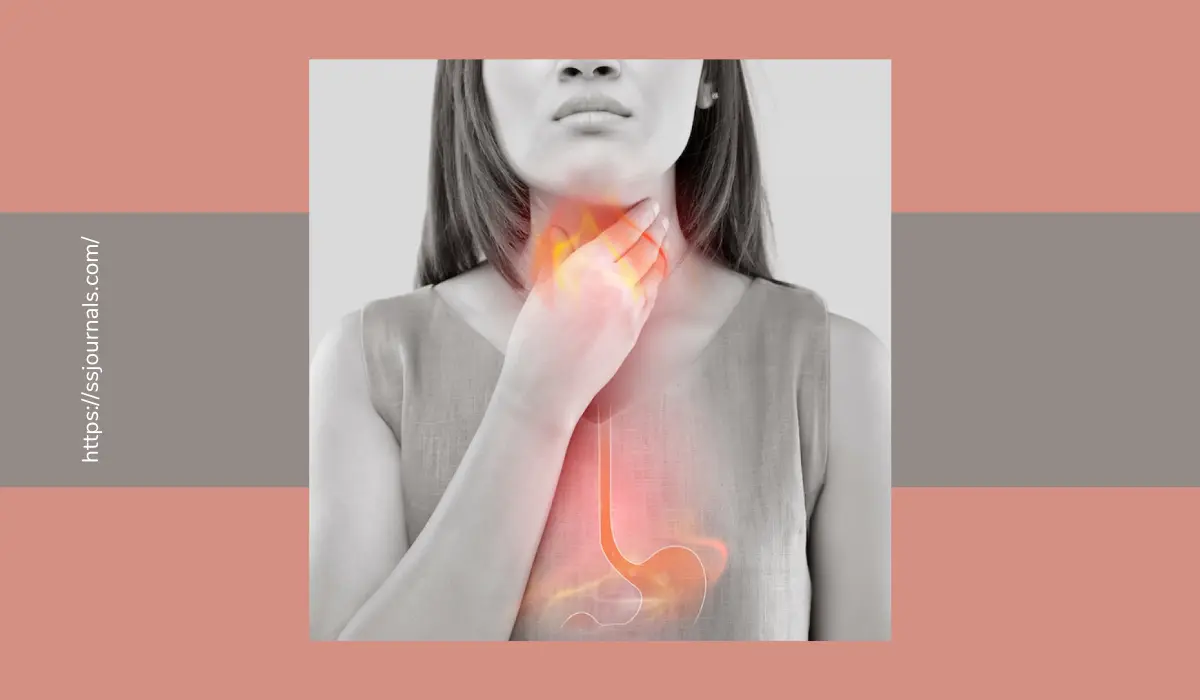Gastroesophageal reflux disease (GERD) is a common digestive disorder that affects the ring of muscle between your esophagus and your stomach, called the lower esophageal sphincter (LES). When this muscle relaxes too frequently or for too long, acidic stomach juices back up into your esophagus, causing a burning sensation in your chest or throat known as heartburn.
While occasional heartburn after eating is normal, GERD sufferers experience persistent heartburn, reflux symptoms, and sometimes other complications. Understanding GERD symptoms, causes, diagnosis, and treatments is key to managing this troublesome condition.
Common Symptoms Of Gastroesophageal Reflux Disease

The most common symptom of GERD is frequent, persistent heartburn, which feels like a burning discomfort behind the breastbone. It can happen after eating or when lying down, sometimes waking people from sleep. Other possible GERD symptoms include:
- Sour, acidic taste in the mouth
- Excessive burping or belching
- Stomach or chest pain
- Difficulty swallowing, or food getting stuck
- Sore throat, hoarse voice, or chronic cough
- Regurgitation of food or bitter-tasting fluids
- Feeling of a lump in the throat
People with nighttime GERD symptoms or long-standing untreated GERD are more likely to experience complications like:
- Asthma symptoms worsened by acid reflux
- Chronic sore throat, laryngitis, or hoarseness
- Dental erosion due to acidic stomach contents damaging tooth enamel
- Chronic sinusitis, bronchitis or pneumonia
- Barrett’s esophagus, a possible pre-cancerous change in the esophageal lining
- Strictures or scar tissue that narrows the esophagus
Causes Of Gastroesophageal Reflux Disease
GERD occurs when acidic stomach contents back up through the LES, the ring-shaped muscle at the junction of the esophagus and stomach. Some contributing factors include:
- Weak or improperly functioning LES: This sphincter acts as a gate to keep contents down, but abnormal functioning means it may relax too frequently or for too long.
- Hiatal hernia: This common condition occurs when part of the stomach pushes upward through the diaphragm, allowing acid up.
- Pregnancy: Hormonal changes and pressure from the uterus can trigger symptoms.
- Obesity: Excess belly fat can increase abdominal pressure and GERD risk.
- Certain foods and beverages: Acidic, spicy, or high-fat foods, coffee, tea, soda, and alcohol can provoke symptoms.
- Eating large meals: Overeating causes the stomach to be overly full, increasing reflux.
- Smoking cigarettes: Smoking impairs the LES muscle, while nicotine decreases lower esophageal sphincter pressure.
- Medications: Drugs like antihistamines, calcium channel blockers, and sedatives can cause relaxation of the LES.
Treatment
Treatment for GERD aims to reduce symptoms, heal any damage to the esophagus, and manage complications or recurrence. Recommended treatment approaches may include:
- Diet and lifestyle changes: Avoiding trigger foods, eating smaller meals, waiting 3 hours before lying down, maintaining a healthy weight, quitting smoking, and managing stress can help symptoms.
- Over-the-counter medications: Antacids, H2 blockers, and proton pump inhibitors (PPIs) help neutralize or decrease stomach acid. PPIs provide the strongest acid suppression.
- Prescription medications: Stronger prescription PPIs are used for long-term GERD treatment. Prokinetics help strengthen the LES or accelerate stomach emptying.
- Surgery: For those who do not improve with medications, anti-reflux surgery can reinforce the LES to prevent reflux. This includes fundoplication procedures.
Newer therapies like magnetic sphincter augmentation involve surgically implanting a magnetic device around the LES to keep it closed and prevent reflux. This option may reduce side effects compared to fundoplication surgery.
Final Take
GERD is an extremely prevalent condition that negatively impacts quality of life, but understanding the causes and treatments helps. Paying attention to diet, making other healthy lifestyle modifications, taking OTC or prescription medications as recommended by your doctor, and considering surgical options in difficult cases can help get symptoms under control. Controlling GERD provides significant benefits in terms of reducing reflux symptoms and preventing complications like esophageal damage, making it worthwhile to find an effective management approach.
FAQs
Doctors often begin with a physical exam and questions about your symptoms. Additional diagnostic tests can confirm GERD, including endoscopy to examine the esophagus, stomach, and duodenum, esophageal manometry to measure muscle contractions, pH monitoring to check your esophagus’ acidity levels, and x-rays using barium to highlight issues.
Lifestyle changes like eating smaller meals, waiting 3 hours before lying down, elevating your head when sleeping, avoiding trigger foods, losing weight if overweight, quitting smoking, avoiding tight clothing, and stress management. Some also find relief using home remedies like chewing gum, licorice root tea, Aloe Vera juice, baking soda water, apple cider vinegar, and slippery elm.
While GERD cannot always be prevented, you can minimize symptoms and flares through lifestyle modification and these proactive steps: reach/maintain a healthy weight, avoid trigger foods, eat smaller meals, don’t lie down soon after eating, quit smoking, reduce alcohol intake, and manage stress levels. Taking PPIs or H2 blockers preventively can also suppress excess acid production before symptoms start.
Try avoiding or limiting these common heartburn triggers: spicy foods, fried & fatty foods, citrus fruits, tomatoes, garlic, onions, chocolate, mint, coffee, tea, soda, alcohol, and large portions of any food. Keeping a food journal can help identify your personal trigger foods to avoid.

